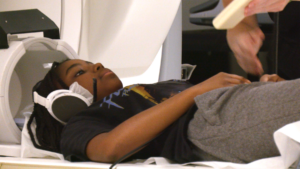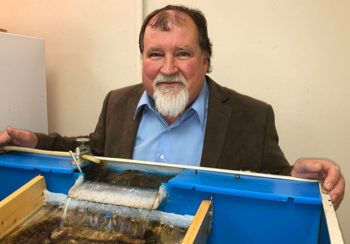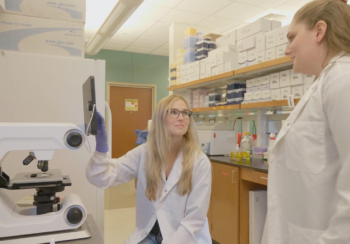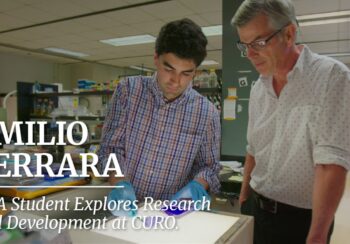Forty years ago, Abraham Tesser, the newly appointed director of the University of Georgia’s Institute for Behavioral Research (now the Owens Institute for Behavioral Research), had an opportunity to influence the future of behavioral research at the university. Among other things, he recognized that there were scholars in different departments who were doing related work but had no formal structure to connect them with each other.
At the same time, Rex Forehand, a professor of psychology, encouraged him to consider “de-siloing” scholars studying family issues by creating an umbrella center under which all could reside.
The result was one of Tesser’s first changes to the Institute: creation of the Center for Family Research (CFR). He appointed Forehand as its first director whose scholarship then helped build the Center’s visibility, and “his leadership and administrative skills helped establish the Center’s long-term viability,” Tesser said.
Now, 40 years later, CFR is one of the oldest research centers at UGA. It has brought in tens of millions of dollars in research funding, published hundreds of papers, employed dozens of faculty and staff, and profoundly influenced the field of family research.
“CFR’s legacy of important insights and attention to overlooked issues is well established,” said Steven Beach, Regents’ Professor in the Department of Psychology and current CFR director.
The early success of CFR attracted other scholars, including Gene Brody, who became CFR’s director in 1995 with co-director Velma McBride Murry.
Recognizing the dearth of research on the unique circumstances in which Black families live and thrive, particularly in the South, CFR began to focus on how children, their caregivers, and the broader community interact to affect the health and psychological adjustment among these families. Through several decades of leadership, Brody helped scholars at the Center bring in over $150 million in funding and publish hundreds of papers.
CFR continues to conduct groundbreaking research that explores the impact of early-life adversity and its effects across the lifespan. Through longitudinal research that has incorporated neurological and biological measures in recent years, CFR is at the forefront of understanding how stress gets under the skin of marginalized groups as well as how the strengths of their families protect against these harmful effects.
For example, researchers at the Center are exploring how toxic stressors, such as socioeconomic disadvantage and poverty, are linked to accelerated epigenetic aging, inflammation, and pre-disease risk markers. This work has been instrumental in identifying possible mechanisms that help explain how stress becomes embedded in the body and manifests as chronic disease decades later.
CFR has also translated its basic research into preventive intervention programs that serve families directly such as the Sleep SAAF intervention for first-time Black mothers and their infants, the Strong African American Families (SAAF) and SAAF-Teen programs for youth, the Adults in the Making (AIM) program, and the Promoting Strong African American Families (ProSAAF) that focuses on couples raising children. To facilitate dissemination, the center has a unit led by CFR’s assistant director, Tracy Anderson, that has delivered trainings in over 20 states. That outreach continues to grow.
Among many positive outcomes from these programs, youth who participate in SAAF have been shown to have fewer conduct problems and exhibit less stress-related damage in their immune system. Uncovering and promoting such protective mechanisms has been a central focus of CFR’s work.

The Center also provides support to Georgia home visiting programs around the state. These programs, serving over 60 Georgia counties, take a strengths-based, family-centered approach to help expectant and at-risk families with children from birth until kindergarten raise children who are physically, socially, and emotionally healthy and ready to learn.
Beach notes that the Center is both continuing and expanding its work.
“As we continue to focus on ways to better protect and enhance the resilience of Black youth,” he said, “we are also expanding our focus to recognize the broader challenges confronting families across the life cycle, and additional sources of resilience including ways to strengthen marriage and other primary relationships in adulthood, ways to enhance the transition to parenthood, and ways to enhance resilience to problems associated with aging and dementia in the context of chronic stressors.”
The broader focus reflects CFR’s interest in all sources of adversity and marginalization as well as all sources of resilience “because of their potential to influence health,” he said. Beach added that the Center for Family Research is also strengthening connections to other groups across campus working on similar issues, recapturing the original intent of Tesser and others to break down silos at UGA.
Learn more about the Center for Family Research at https://cfr.uga.edu/.






